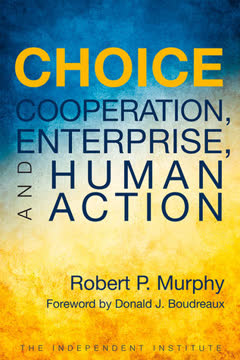Key Takeaways
1. Human action is purposeful behavior driven by subjective preferences
"Time preference is a categorial requisite of human action. No mode of action can be thought of in which satisfaction within a nearer period of the future is not—other things being equal—preferred to that in a later period."
Praxeology. Economics is a branch of praxeology, the science of human action. Human action is purposeful behavior aimed at achieving subjective ends. All action implies choices, trade-offs, and opportunity costs. People act to remove felt uneasiness and move from a less to a more satisfactory state.
Subjective value theory. Value is subjective and ordinal, not objective or measurable. People rank options based on their personal preferences. There is no way to compare the utility or satisfaction between different individuals. This subjectivist approach overturned classical economics' attempts to find an objective source of value.
Time preference. People generally prefer present goods to future goods of the same kind and quantity. This universal fact of time preference gives rise to interest as a market phenomenon. Lower time preference (more future-orientation) leads to more saving, investment and capital accumulation over time.
2. Economic calculation requires private property and market prices
"Economic calculation is the fundamental issue in the comprehension of all problems commonly called economic."
Market prices enable calculation. In a market economy with private property, money prices emerge for goods and services. These prices contain valuable information about relative scarcities and consumer preferences. Entrepreneurs can use prices to calculate profits and losses, guiding resources to their most valued uses.
Socialist calculation problem. Without private property and market prices, rational economic calculation is impossible. Socialist central planners have no way to determine the most efficient use of resources or the proper allocation of goods. This is why socialism inevitably results in chaos and poverty.
Key elements for economic calculation:
- Private property rights
- Free market prices
- Sound money
- Profit and loss accounting
3. The market economy is driven by consumer sovereignty and entrepreneurship
"The direction of all economic affairs is in the market society a task of the entrepreneurs. Theirs is the control of production. They are at the helm and steer the ship. A superficial observer would believe that they are supreme. But they are not. They are bound to obey unconditionally the captain's orders. The captain is the consumer."
Consumer sovereignty. In a free market, consumers ultimately determine what is produced through their buying decisions. Entrepreneurs and capitalists who best serve consumer wants earn profits, while those who misallocate resources incur losses.
Entrepreneurship. Entrepreneurs drive the market process through their forecasting, risk-taking, and innovation. They seek to anticipate future consumer demands and reallocate resources accordingly. Successful entrepreneurs earn profits by better serving consumers, while losses weed out inefficient firms.
Key market processes:
- Consumer choices guide production
- Profit and loss provides feedback
- Competition spurs innovation
- Prices coordinate decentralized knowledge
4. Money emerges spontaneously to facilitate exchange and economic calculation
"Nothing can enter into the function of a medium of exchange which was not already previously an economic good and to which people assigned exchange value already before it was demanded as such a medium."
Origin of money. Money is not created by government decree, but emerges spontaneously in the market as the most saleable commodity. Over time, precious metals like gold became widely accepted as money due to their durability, divisibility, and scarcity.
Monetary calculation. The use of money allows complex economic calculation through commensurable market prices. This makes possible the advanced division of labor, capital accumulation, and rising living standards of modern civilization.
Characteristics of sound money:
- Emerged through voluntary exchange
- Scarce and costly to produce
- Durable and divisible
- Store of value over time
5. Credit expansion causes unsustainable booms and inevitable busts
"The essence of the credit-expansion boom is not overinvestment, but investment in wrong lines, i.e., malinvestment."
Austrian business cycle theory. When banks expand credit and artificially lower interest rates, it causes an unsustainable boom. Entrepreneurs are misled into making malinvestments in longer-term projects that cannot be completed with available resources. The bust is the necessary correction of these errors.
Malinvestment, not overinvestment. The problem is not too much investment in general, but investment in the wrong sectors and stages of production. The structure of production becomes distorted in ways incompatible with consumer time preferences and available resources.
Stages of the business cycle:
- Credit expansion lowers interest rates
- Malinvestments in capital-intensive projects
- Consumer goods prices rise, squeezing profits
- Credit tightens, interest rates rise
- Unprofitable investments liquidated in recession
6. Socialism fails due to the impossibility of economic calculation
"The paradox of 'planning' is that it cannot plan, because of the absence of economic calculation. What is called a planned economy is no economy at all. It is just a system of groping about in the dark."
Calculation problem. Without market prices based on private property, socialist planners have no way to rationally allocate resources or determine the most efficient production methods. They lack the knowledge to coordinate a complex economy.
Incentive problem. Socialism also suffers from a lack of incentives for productivity and innovation. Without private property and market profits/losses, individuals have little motivation to work hard or take entrepreneurial risks.
Key issues with socialism:
- No rational basis for economic calculation
- Lack of incentives for efficiency and innovation
- Knowledge problem of central planning
- Tendency toward authoritarianism
7. Government intervention in the market economy is counterproductive
"The interventionist policies as practiced for many decades by all governments of the capitalistic West have brought about all those effects which the economists predicted. There are wars and civil wars, ruthless oppression of the masses by clusters of self-appointed dictators, economic depressions, mass unemployment, capital consumption, and famines."
Unintended consequences. Government interventions in the market, while often well-intentioned, tend to have effects opposite to those intended. Price controls lead to shortages or surpluses. Minimum wage laws increase unemployment. Protectionism reduces overall economic welfare.
Interventionist dynamics. Each intervention creates new problems, leading to calls for further interventions. This dynamic tends toward either socialism or a return to free markets. There is no stable "middle ground" between capitalism and socialism.
Examples of counterproductive interventions:
- Price controls → shortages/surpluses
- Minimum wages → unemployment
- Rent control → housing shortages
- Protectionism → reduced productivity
- Inflation → boom-bust cycles
8. Sound money and free markets are essential for prosperity and peace
"The gold standard was the world standard of the age of capitalism, increasing welfare, liberty, and democracy, both political and economic. In the eyes of the free traders its main eminence was precisely the fact that it was an international standard as required by international trade and the transactions of the international money and capital market."
Economic freedom. Free markets based on private property rights, sound money, and the rule of law are essential for prosperity. Economic freedom allows rational calculation, efficient resource allocation, and rising living standards.
International peace. Free trade and sound money foster international cooperation and reduce conflicts between nations. Protectionism and currency manipulation lead to economic nationalism and increase the likelihood of war.
Benefits of economic freedom:
- Rational economic calculation
- Efficient resource allocation
- Innovation and rising productivity
- International cooperation and peace
- Protection against government abuses
Human Action is a comprehensive treatise on economics and social philosophy. Mises provides a rigorous defense of free market capitalism based on praxeological reasoning. He demonstrates why socialism is inherently unworkable and why government interventions in the market are counterproductive. Sound money, private property, and economic freedom are shown to be essential for prosperity, social cooperation, and peace.
</instructions>
Last updated:
FAQ
What is Choice: Cooperation, Enterprise, and Human Action by Robert P. Murphy about?
- Modern restatement of Mises: The book is a clear, accessible summary of Ludwig von Mises’s Human Action, focusing on Austrian economics and the science of purposeful human behavior.
- Scope of analysis: It covers praxeology (the study of human action), economic calculation, market processes, money, capital, interest, and critiques of socialism and interventionism.
- Practical implications: Murphy explains how economics underpins civilization, why economic knowledge is vital, and how market cooperation arises without central planning.
Why should I read Choice by Robert P. Murphy?
- Accessible introduction to Mises: Murphy distills complex Austrian economic ideas into clear, engaging language suitable for students and lay readers.
- Bridges theory and practice: The book connects abstract economic theory to real-world issues like business cycles, money, and government policy.
- Counter to misconceptions: It addresses common economic fallacies and explains why understanding economics is crucial for informed citizenship and policy debates.
What are the key takeaways from Choice by Robert P. Murphy?
- Economics as human action: Economics is the logical study of purposeful behavior, not just statistics or empirical data.
- Importance of economic calculation: Rational allocation of resources requires money prices, which only arise in a market with private property.
- Limits of intervention: Socialism and government intervention disrupt economic calculation, leading to inefficiency and social problems.
- Role of ideas: Economic and social progress depend on sound ideas and reasoned debate.
How does Robert P. Murphy define economics and its scientific method in Choice?
- Praxeology as foundation: Economics is the science of human action, using logical deduction rather than empirical testing.
- A priori knowledge: Economic laws are known through reason, similar to mathematics, and do not require experimental validation.
- Scope of study: Economics focuses on purposeful action within society, especially market exchanges involving private property and money.
How does Choice by Robert P. Murphy explain the concept of human action and rationality?
- Purposeful behavior: Human action is intentional, goal-directed, and distinct from reflexes or involuntary responses.
- Subjective preferences: Individuals rank alternatives ordinally; economists can observe choices but not measure utility in absolute terms.
- Universal rationality: All action is rational in the Misesian sense, guided by expectations and reasoning, even if outcomes are mistaken.
What is economic calculation according to Choice by Robert P. Murphy, and why is it essential?
- Monetary calculation: Economic calculation is the process of comparing costs and benefits using money prices, enabling rational resource allocation.
- Dependence on markets: Calculation requires private property and genuine market prices; without these, as in socialism, rational planning is impossible.
- Foundation of civilization: Economic calculation is central to coordinating complex production and consumption, making modern society possible.
How does Choice by Robert P. Murphy explain the origin and nature of money?
- Spontaneous emergence: Money arises naturally from barter as individuals seek more marketable goods for indirect exchange, not by government decree.
- Definition of money: Money is a universally accepted medium of exchange, evolving from commodities like gold and silver due to their desirable properties.
- Mises’s regression theorem: The value of money today is linked to its purchasing power in the past, solving the circularity problem of money’s value.
How are prices formed in the market according to Choice by Robert P. Murphy?
- Subjective value theory: Prices result from individuals’ subjective valuations and marginal utility, not from labor or production costs.
- From barter to money: The book shows how barter exchange ratios reflect preferences and how money prices extend this process for complex economies.
- Entrepreneurial role: Entrepreneurs anticipate consumer demand and bid for resources, linking consumer preferences to producer goods prices.
What is the Austrian business cycle theory as presented in Choice by Robert P. Murphy?
- Credit expansion effects: Artificially low interest rates from credit expansion mislead entrepreneurs, causing unsustainable investment booms.
- Malinvestment and busts: The boom leads to malinvestment—resources are misallocated—and eventually a bust as the market corrects these errors.
- Policy implications: Attempts to prolong the boom worsen the correction; sound money and banking are essential for stability.
How does Choice by Robert P. Murphy distinguish between capital goods and financial capital?
- Capital goods: These are physical, intermediate goods used in production, such as machines and buildings, which are heterogeneous and perishable.
- Financial capital: This refers to the monetary value of assets, an accounting concept used for economic calculation and investment decisions.
- Importance for calculation: Understanding both is crucial for assessing profitability, investment, and the dynamics of capital accumulation.
What is the pure time preference theory of interest in Choice by Robert P. Murphy?
- Interest from time preference: Interest arises because people prefer present goods to future goods, valuing immediate satisfaction more highly.
- Critique of productivity theory: The book rejects the idea that interest is due to capital productivity, emphasizing subjective time preference instead.
- Manifestation in markets: Interest appears as the premium on present over future goods and is reflected in loan markets and investment decisions.
What is Mises’s critique of socialism and government intervention in Choice by Robert P. Murphy?
- Impossibility of calculation: Without private property and market prices, socialism cannot perform rational economic calculation, leading to chaos.
- Limits of interventionism: Government interventions like price controls and taxes distort markets, causing unintended consequences and inefficiency.
- No stable middle ground: Mises argues that interventionism tends to expand or collapse into socialism, as partial interventions create further problems.
Review Summary
Choice by Robert P. Murphy is highly praised as an accessible introduction to Ludwig von Mises' economic theories, particularly his work "Human Action". Readers appreciate Murphy's clear explanations, modern examples, and engaging writing style. The book is seen as an excellent primer on Austrian economics, covering topics like money, inflation, and entrepreneurship. Many reviewers recommend it as a more approachable alternative to Mises' original text. While some note its limitations in defending certain concepts, overall it's considered a valuable resource for understanding Mises' ideas and Austrian economic thought.
Similar Books
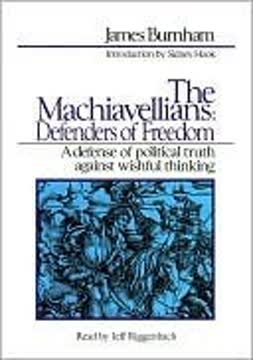
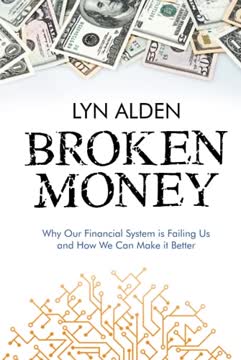
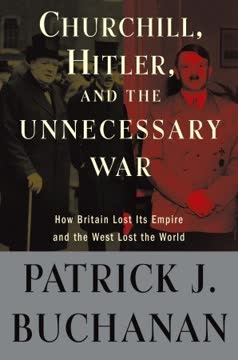
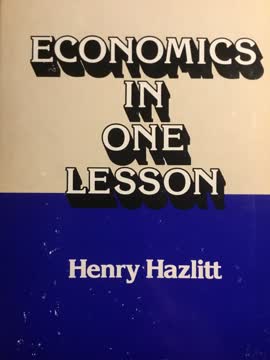
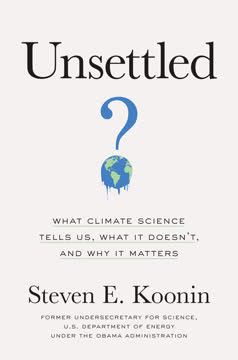
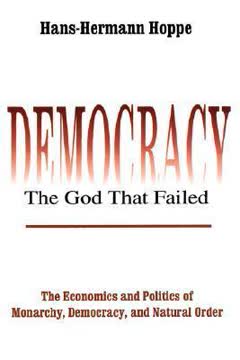
Download PDF
Download EPUB
.epub digital book format is ideal for reading ebooks on phones, tablets, and e-readers.
